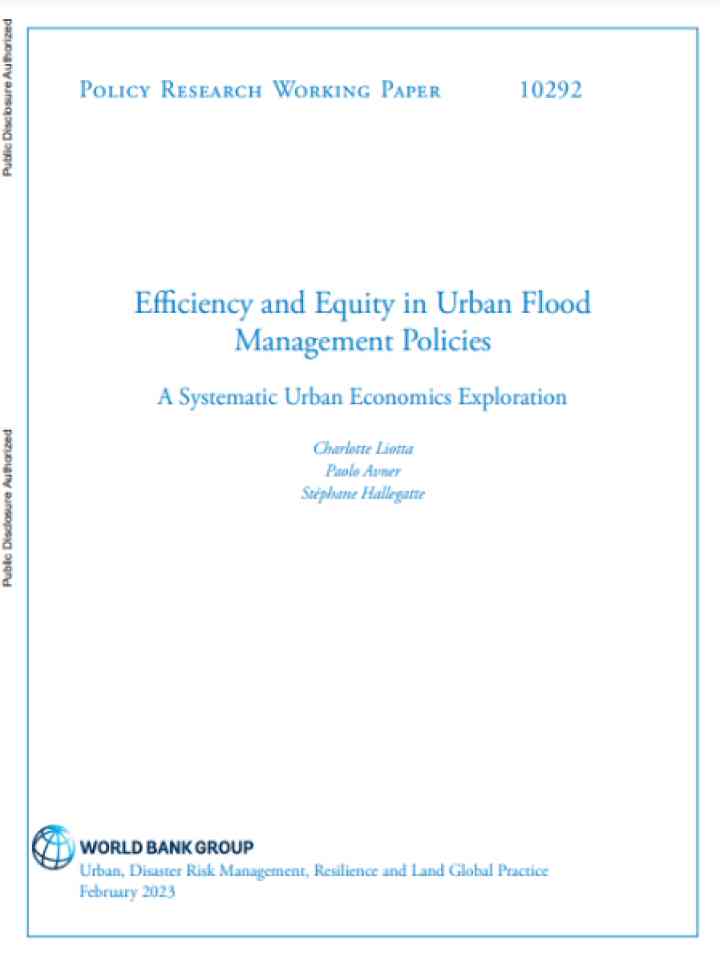Efficiency and equity in urban flood management policies: a systematic urban economics exploration
This paper builds on a classical urban economics model to investigate the effects of flood management policies in a theoretical monocentric city. It compares three flood management policies (risk-based insurance, subsidized insurance, and zoning) and a laissez-faire situation with myopic agents with a situation with no floods. Enriching the framework by considering two income classes and different distributions of flood-prone areas, they investigate how flood management policies perform in terms of welfare, and explore distributional impacts for the different spatial distributions of flood-prone areas.
The paper shows that implementing flood management policies can reduce social welfare losses from floods compared to a myopic or laissez-faire situation in which economic agents do not anticipate flood occurrences and costs. Risk-based insurance is the first-best policy in terms of maximizing social welfare, but subsidized insurance or zoning can be good options, depending on flood characteristics. Welfare losses from floods—and from implementing the wrong flood management policy—are particularly important when flooding takes place in the city center. Agreement between income groups on the hierarchy of flood management policies cautiously points to an absence of political economy issues that could lead to selecting a costly flood management option.
Explore further
